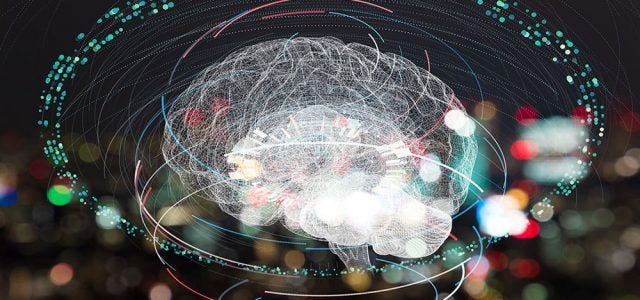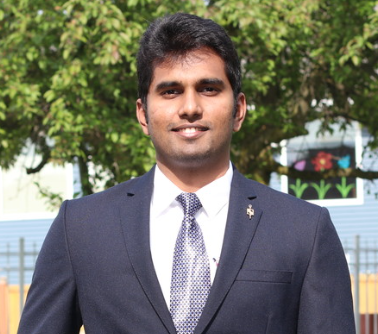Data for Good: How Open Data Science is Fueling Positive Change

Imagine having the power to predict the future. To know when people will get sick or if infrastructure will fail before it happens. This very superpower is emerging today through open data science — the use of publicly available data and tools by everyday citizens to drive social change. I know it sounds unbelievable, but stay with me here.
Just ten years ago, the idea of ordinary people leveraging data science for humanitarian causes would have seemed like wishful thinking. Back then, these capabilities were locked away in Silicon Valley tech giants, elite universities, and secretive government agencies. But extraordinary things can happen when smart people get unlimited access to knowledge and tools.
Flash forward to today: we are witnessing an unprecedented wave of grassroots open data projects targeting some of humanity’s greatest challenges — from eradicating diseases to responding to disasters. This is being accelerated by three mass movements that define this decade:
The Open Data Movement
Imagine universal access to volumes of public data — census records, health statistics, geographic maps — all available for anyone to analyze. Driven by public policy, governments worldwide have opened up over 2600 data portals since 2006 alone. That’s a pace of around 200 new ones annually!
The Open Source Movement
Sophisticated data science software used within NASA, banks and research labs is now completely open source. We’re talking libraries that can build neural networks, run complex simulations using Python/R, and conduct predictive modeling without needing advanced degrees. Talk about mind-blowing.
The Open Science Movement
Imagine global collaborations to solve cancer happening out in the open — that’s the vision of the open science movement which promotes knowledge sharing. In data science, Kaggle’s community has over 6 million data enthusiasts working on problems posed by organizations. GitHub hosts endless public projects tackling humanitarian issues.
Now here’s the fascinating thing: These three revolutions have collided together to democratize data science globally. The outcomes have been remarkable, fueling ingenious grassroots projects across domains like healthcare, disaster relief and economic empowerment.
Let’s see how ordinary citizens with data superpowers are driving change:
Saving Lives
In rural Kenya, local healthcare workers are using AI-powered apps on simple smartphones to diagnose patients’ symptoms. By analyzing incoming health data and comparing it to historical records on the cloud, automated diagnoses can be made with higher accuracy than in-person consultations! This telemedicine revolution enabled by open data science provided a lifeline during COVID-19 by revealing insights into the pandemic quickly.
Preparing Communities
When hurricanes battered Puerto Rico, online volunteers collaborated using open-source software and public satellite data to rapidly map localized damage. By having quick access to visualization tools plus feeds from NASA and NOAA, recovery operations could respond effectively by routing aid equipment, avoiding blocked infrastructure revealed in the grassroots maps. Similar open mapping efforts allowed Indonesian communities to build solar microgrids to withstand disasters.
Solving Ancient Problems
Have you heard of schistosomiasis? It’s a little-known parasitic disease that has plagued sub-Saharan Africa for centuries, causing terrible pain and even death for millions.
Today, however, an open web platform allows almost anyone to build predictive models that map the spreading patterns of parasitic worms that cause this illness. Public health workers leverage this to optimize interventions, coming closer than ever to defeating this ancient disease.
These examples illustrate how open data science can ignite progress quickly — by empowering local experts on the frontlines with data superpowers. But this surging movement has been particularly driven by three special groups of dedicated individuals:
The Tech Changemakers
From prominent data scientists to student hobbyists, talented tech professionals across global companies, universities, and governments are converging to volunteer their skills for humanitarian causes.
Collaborating via programs like DataKind, they provide sorely-needed expertise in AI, analysis, and visualization to grassroots projects and cash-strapped non-profits. Their donations of skills, elbow grease, and passion are what catalyze lasting change.
The Non-Profit Disruptors
Many non-profits and NGOs are waking up to the vast possibilities of open data science. CharityWater has an in-house data team leveraging AI for tasks like predicting when its water systems in developing regions will fail before breakdowns happen.
This allows quicker repairs and over $700 savings per pump annually. Other non-profits are tapping into wider collaborative networks to access analytical capabilities and bolster their operations.
The Everyday Activists
Citizen volunteers worldwide are donating hours in their free time to drive data projects on causes dear to them — tracking pollution in their cities to build health risk maps or modeling the spread of viruses. Often participating through volunteer networks, their niche expertise and sheer determination are powering breakthrough solutions.
As more get involved, the outcomes achieved by connecting shared goals with freely available tools continue to scale rapidly. As these special groups of people converge to donate their skills for global good, the limits of what open data science can achieve start to look boundless. Here are some realms this could shake up in years ahead as more trailblazers join in:
Revolutionizing Disaster Response
What if prediction models helped first responders know exactly when and where people would need rescuing in disasters? By combining open satellite imagery, sensor data, and crowdsourced social media feeds, this is within reach. Lives saved could dramatically improve worldwide.
Accelerating Medical Discoveries
Diseases like cancer and AIDS have remained painfully unsolved for decades by closed research communities. But open science advocates argue that collaboration could speed up finding cures.
With more open-access publications, data sharing between global universities, and crowdsourced platforms for analyzing public health data — medical innovation may possibly skyrocket.
Optimizing Sustainable Infrastructure
As developing regions expand renewables in the climate change fight, open modeling of parameters like energy demands, storage costs and location viability for solar/wind farms becomes indispensable. Tapping the expertise of data scientists globally could provide tailored, optimal solutions that enable clean electricity access for remote areas.
With infinite use cases like these, the ongoing proliferation of data, and democratized tools — open data science sits poised to accelerate worldwide problem-solving exponentially.
However, there remain notable challenges today regarding aspects like data quality, funding constraints for non-profits, and promoting diversity in participation across countries and genders for this movement. Privacy and ethical application of techniques like AI also require deep consideration as efforts scale up globally.
But despite such challenges, I feel tremendously hopeful. Open data science is indicative of a cultural shift towards openness, collaboration, and using technology responsibly for the greater good. Even today, we’re witnessing inspiring breakthroughs on age-old problems happen through the power of human cooperation unlocked by sharing data and knowledge freely.
The future potential feels limitless — to uplift communities, save more lives, and solve complex issues collaboratively like never before. The revolution has already begun through citizens worldwide donating their skills for good. What remains to be seen over the coming decade is whether influential institutions will follow citizens’ lead.
Imagine the possibilities if governments invested more in open data access and capabilities development. If elite universities shared life-saving research openly rather than chasing patents. If tech giants supported collaborative platforms more boldly. The outcomes could be unprecedented — with data science advancing equity globally.
And that is the future many grassroots advocates are working towards — one driven by ordinary people coming together in service of the greater humanity through using data for good. Ultimately, such a future reflects the kind of world most of us deeply yearn to see. And open data science may just be the portal that transports us into its very real possibility.
Article on data science for good contributed by Shafeeq Rahaman.

Shafeeq Ur Rahaman is a seasoned data analytics and infrastructure leader with over a decade of experience developing innovative, data-driven solutions. As the Associate Director of Analytics & Data Infrastructure at Monks, he specializes in designing complex data pipelines and cloud-based architectures that drive business performance. Shafeeq is passionate about advancing data science, fostering continuous learning, and translating data into actionable insights.
